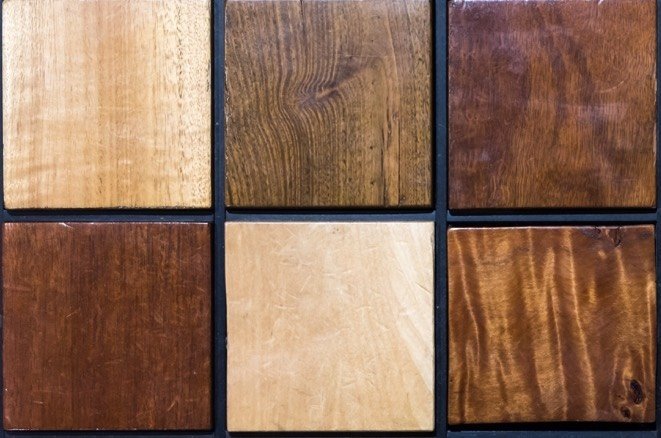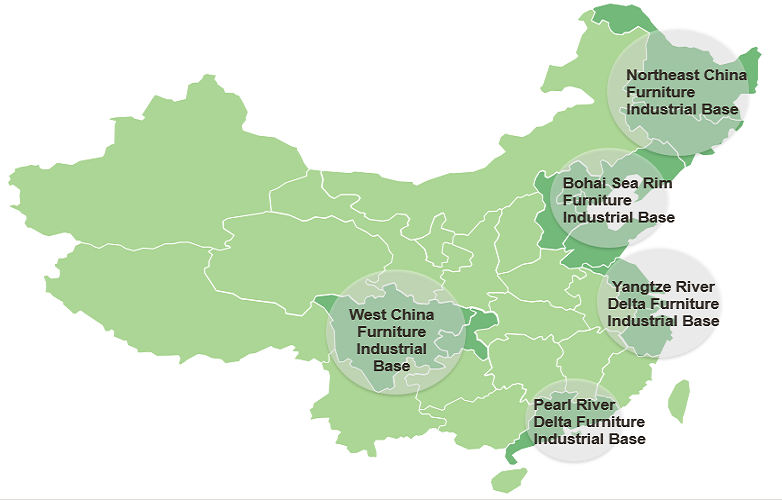The Truth Grill Manufacturers Won’t Tell You About China Imports
1. Introduction
2. The Pros of Importing Grills from China
3. The Cons of Importing Grills from China
4. Types of Grills
5. What Grill Manufacturers Won’t Tell You
6. Factors to Consider Before Importing Grills from China
7. How to find a grill manufacturer in China?
8. What is the Process for Importing Grills from China?
9. How to Solve Quality Issues When Importing Grills from China
10. Conclusion
1. Introduction
This handbook provides helpful advice and tactics for obtaining the greatest discounts, from comprehending market dynamics to handling factory discussions.
This extensive resource will assist you in streamlining your purchasing procedure and guaranteeing the success of your hookah business, regardless of your level of experience as an importer or your exposure level to the wholesale market.
1.1 The Popularity of Outdoor Grilling
Many people now consider grilling outside a favorite pastime because it is a tasty and best way to cook. Whether for backyard barbecues or outdoor events, grilling provides a convenient way to enjoy food with friends and loved ones.
Grilling is a popular choice because of the delicious sounds, alluring scents, and satisfaction of cooking food outside. Due to their rising demand, many consumers are searching for reasonably priced but dependable grills in response to their recent boom in popularity.
Consequently, companies looking for affordable options are turning to importing grills, especially from China. Nonetheless, there are a number of things to take into account before entering the worldwide grill industry.
1.2 Importance of Importing Grills from China
China is now recognized as a major hub for global manufacturing, producing all kinds of products, including barbecues.
Importing grills from China is a feasible option for companies trying to satisfy customer expectations at cheap pricing.
Retailers and business owners aiming to increase their product options find Chinese manufacturers appealing due to their reputation for producing things in large quantities, frequently at a reduced cost.
1.3 The Growing Trend of Importing Grills from China
The ability to alter designs to match market demands and the availability of reasonably priced items have made importing grills from China more popular in recent years.
As global trade agreements and logistics progress, firms across the globe are increasingly sourcing their grills from China.
The outdoor grilling market is changing because of this trend, as more businesses use Chinese manufacturing to maintain their competitiveness in a developing sector.
2. The Pros of Importing Grills from China
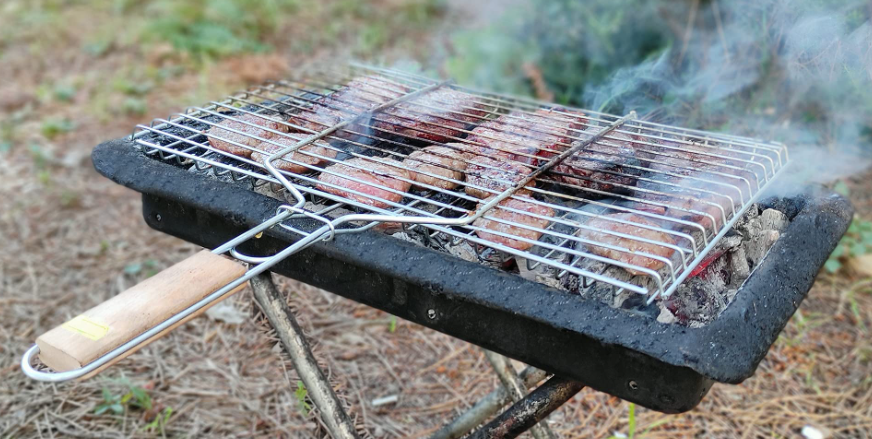
Several benefits to importing grills from China can be quite advantageous to merchants and manufacturers. Here are a few main advantages
2.1 Lower Production Costs
The cheaper production costs are among the biggest benefits of purchasing grills from China. Lower labor costs, more affordable raw materials, and more effective supply networks let Chinese firms provide competitive prices to foreign consumers. Businesses’ profit margins might rise dramatically because of these cost savings.
2.2 High Manufacturing Capacity
Due to China’s extensive industrial infrastructure, producers can supply the increasing demand for grills worldwide by producing grills in enormous quantities. Bulk orders will be fulfilled promptly, thanks to the high manufacturing capacity, which is crucial for companies that want quick and reliable inventories.
2.3 Greater Flexibility in Customization
Chinese producers frequently provide firms with customizable grills suited to their target customers. Companies can diversify their products and appeal to a wider customer base by importing from China, whether it’s through distinctive designs, particular materials, or additional features.
2.4 High Production Capacity
Chinese manufacturers are perfect for companies trying to grow since they can manage big orders. Having the ability to produce in large quantities not only ensures quicker lead times but also that supply can meet demand, particularly during busy seasons.
2.5 A Large Pool of Skilled Workers
China has a large labor pool with expertise in many different manufacturing techniques. These employees help to keep costs down while guaranteeing the finished goods satisfy industry requirements because they have experience creating high-quality grills and running productive manufacturing lines.
2.6 Advantages of Tapping into the Chinese Labor Pool
Businesses can take advantage of economies of scale when they have large, trained personnel and pay that are comparatively lower. Having labor available for all stages of production—from design to assembly—guarantees efficient and economical manufacturing processes.
2.7 Quality Assurance
Numerous Chinese producers have made significant investments in cutting-edge technology and quality assurance procedures.
This guarantees that the grills they make satisfy global standards, giving companies peace of mind about the dependability and robustness of the goods they import.
Reducing the risks connected with imports can be achieved by collaborating with reputable producers who have an emphasis on quality control..
3. The Cons of Importing Grills from China
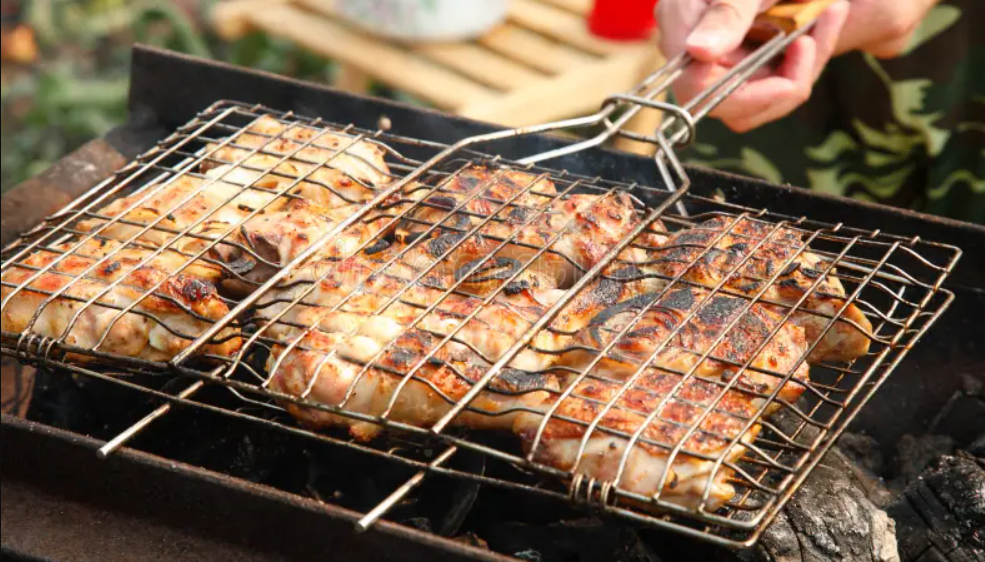
While there are many benefits to buying grills from China, there are also some possible disadvantages that companies should carefully weigh. Here are a few main drawbacks:
3.1 Quality Control Issues
Although many Chinese producers create high-quality goods, quality control isn’t always reliable. Defects, inferior materials, or goods that don’t match standards may come from this. Companies must spend money on careful screening and inspections to make sure the grills they acquire live up to their expectations.
3.2 Language and Cultural Barriers
Dealing with Chinese manufacturers may present communication difficulties because of cultural and linguistic barriers. Costly mistakes might result from misunderstandings over product specs, order information, or delivery schedules. To prevent these problems, lines of communication must be established that are both clear and efficient.
3.3 Supply Chain Risks
Potential supply chain risks, such as delays brought on by industrial closures, natural disasters, or political unrest, are introduced when importing from China. These hiccups may seriously impair the prompt delivery of goods, resulting in shortages of inventory or lost sales opportunities.
3.4 Intellectual Property Rights
When manufacturing in China, companies that depend on exclusive designs or technologies for their grills should exercise caution. Enforcing intellectual property (IP) rights can be difficult, and there’s a chance that unapproved copies or copies of designs will be made. Enforcing legal safeguards across international borders might provide difficulties.
3.5 Shipping and Logistics Challenges
Grills and other large, heavy items can be costly and logistically challenging to ship. Companies have to deal with high shipping costs, protracted transit periods, and possible port delays. Tariffs, taxes, and import charges can also raise the total cost and reduce the perceived cost-effectiveness of importing.
3.6 Customs and Import Regulations
Customs procedures can be complicated and time-consuming, as can following import laws. It can be difficult to import goods since different nations have various laws governing product safety, labeling, and tariffs. At the border, shipments may be refused, or penalties may be imposed for breaking certain regulations.
4. Types of Grills
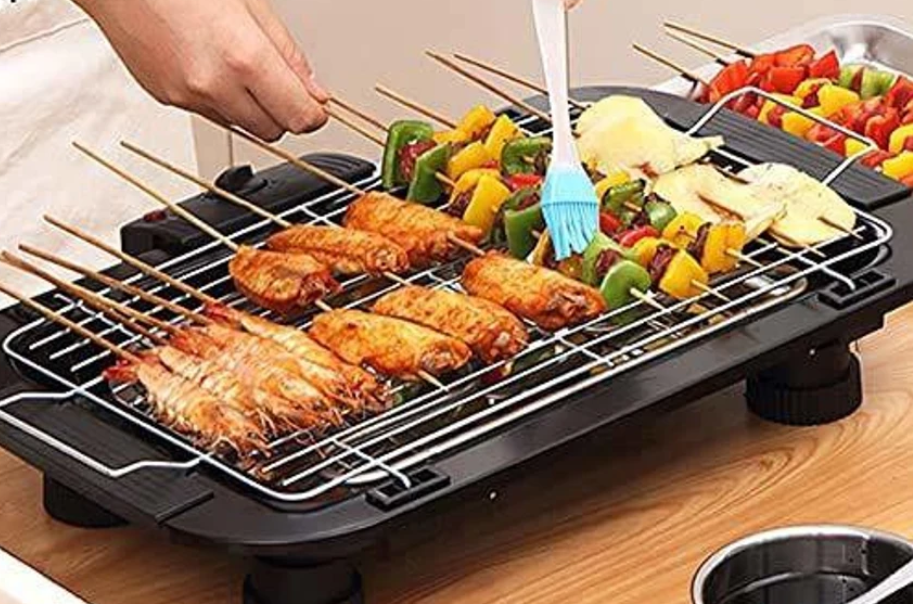
There exist diverse grill kinds that are intended to accommodate varying cooking styles and preferences when it comes to grilling. The prevalent varieties of grills are as follows:
Gas Grills
With easily adjustable burners, gas grills provide constant, easy-to-control heat using either natural gas or propane as fuel.
Charcoal Grills
Enthusiasts who value the smoky flavor that charcoal grills add to food tend to favor them. Many people do think the improved flavor is worth the work, though. These grills provide a classic grilling experience, complete with tremendous heat and the beloved distinctive char.
Electric Grills
For people who have limited outside space or are restricted from using open flames, electric grills are a practical choice. They provide steady, reliable heat and plug into an electrical outlet.
Portable Grills
Due to its ability to cook while on the road, portable grills are ideal for tiny outdoor environments such as camping. These lightweight, portable gas, charcoal, or electric grills are small in size and easy to move.
Users may enjoy grilled meals wherever they are because of portable grills’ ability to prepare food to a high standard despite their small size.
5. What Grill Manufacturers Won’t Tell You
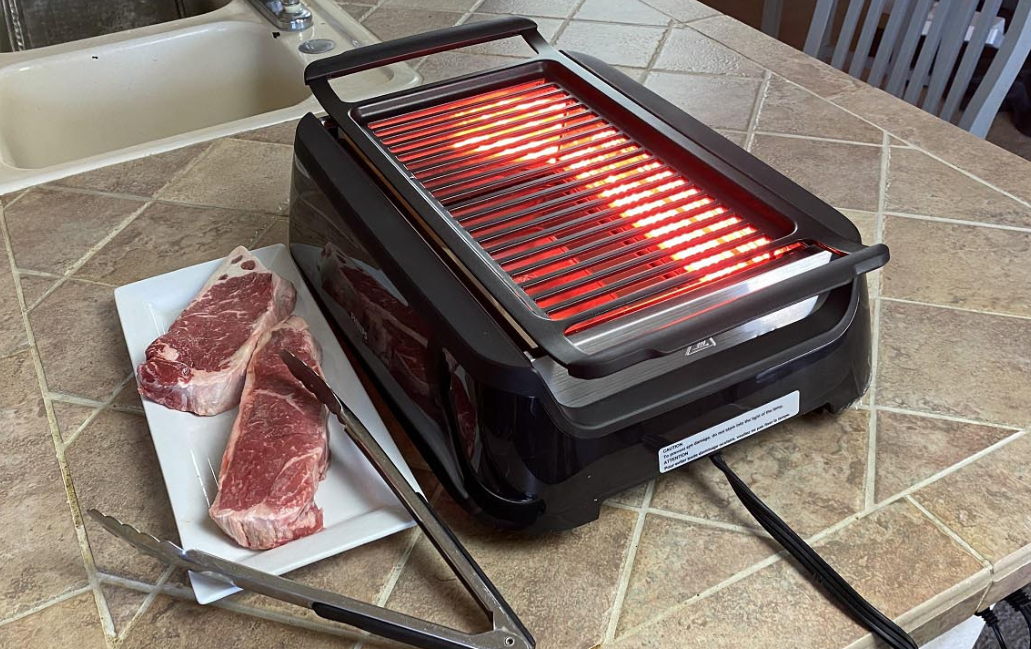
Most barbecue manufacturers will not tell you these important details:
5.1 Hidden Costs and Risks
Even while purchasing grills from China could appear affordable at first, there are frequently additional expenses that manufacturers might not mention.
These may consist of additional charges for inspections or adjustments, tariffs, import duties, and shipping fees. Companies must budget for these costs to prevent unforeseen financial hardships.
5.2 Potential Damage to Brand Reputation
Negative customer feedback can harm a brand’s reputation if grills purchased from China fall short of quality expectations.
Poor quality or defective items can lead to unhappy customers or product returns, which erodes a company’s ability to win over repeat business and loyalty.
5.3 Cost-Cutting Measures
Manufacturers can reduce expenses by utilizing less expensive materials, thickening metal components less, or streamlining production procedures, but these actions might hurt the quality of the finished product.
Although these actions can save costs, they may also impair performance and durability, which would reduce customer satisfaction.
5.4 Use of Substandard Materials
To cut production costs, some manufacturers may opt to employ lower-quality materials without disclosing this information to customers.
As a result, grills may rust more quickly, wear out more quickly, or perform worse. It is possible for businesses to produce goods that do not meet expectations for longevity.
5.5 Quality Control Issues
While some manufacturers have effective quality control procedures in place, many do not place a high priority on thorough testing, particularly for more affordable orders.
Inadequate supervision could result in grills being deployed with flaws that compromise both their functionality and safety. Frequent quality inspections are necessary, but they could cost extra.
5.6 Risks of Unreliable Suppliers and Fraudulent Transactions
Not every Chinese supplier can be trusted. Some might deliver products that are variable in quality, arrive late, or even commit fraud.
Companies that want to reduce the danger of financially losing money or forming untrustworthy partnerships should carefully screen their suppliers and draft strong contracts.
5.7 Risk of Product Defects and Recalls
Defects in products are more likely when inferior materials are used or when production techniques are not done well.
Grills with defects may present a risk to public safety, which could result in recalls, legal problems, and higher expenses for companies.
Recalls can seriously harm a brand’s reputation in the marketplace in addition to being financially detrimental.
6. Factors to Consider Before Importing Grills from China
To Businesses should carefully consider several important elements before opting to import grills from China to ensure a successful and smooth process. Here are some key considerations:
6.1 Quality Assurance Measures
Make sure the producer has strict quality assurance procedures in place before importing grills from China.
This involves confirming that the goods fulfill your requirements and completing the necessary safety testing.
To reduce the likelihood of receiving inferior products, think about using independent inspectors to assess product quality at different production stages.
6.2 The Reputation of the Manufacturer
Investigate prospective manufacturers’ reputations in-depth. Check for ratings, comments, and reviews from other companies that have collaborated with them.
A company that has a solid reputation for creating dependable goods and completing orders promptly will lower the possibility of problems throughout the importation procedure.
6.3 Legal Compliance
Verify that the grills you’re importing adhere to all safety and regulatory requirements in your nation, particularly those about health and environmental regulations.
6.4 Customs Duties and Customs Clearance
Customs clearance and duty payments are necessary when importing products from China. The worth of the goods and the tariff policies of your nation may have an impact on these costs.
Delays and extra expenses at the border can be avoided by being aware of the customs procedure and making sure all documentation is in order.
6.5 Shipping Costs
It’s important to include shipping charges for freight, handling, and insurance when sending large items like grills because doing so can get costly. Transporting goods by air or water can have different delivery schedules, and unforeseen delays can affect sales and inventory planning.
6.6 Finding the Right Supplier
A seamless importation process depends on selecting the appropriate supplier. Collaborate with seasoned, dependable, and accommodating vendors. It is possible to locate a trustworthy partner who satisfies your needs by going to trade exhibitions, seeing factories, or collaborating with sourcing agents.
6.7 Negotiating Prices and Payment Terms
Maximizing your profit margins requires negotiating the best pricing and terms of payment. Make sure that delivery dates, and payment schedules are all made clear upfront.
6.8 Protecting Your Intellectual Property
This is vital, especially if you are importing grills that are built using proprietary designs or technologies.
Make sure you have contracts in place that adequately protect your designs, and think about registering your intellectual property rights in China to prevent unapproved use or duplication of your goods.
6.9 Avoiding Delays and Damage to Goods
Delays in shipping from China can occasionally be caused by bad weather, backed-up ports, or problems with the supply chain.
Choose vendors with reputable logistics partners, and think about shipping insurance to guard against cargo damage that can occur while en route.
Making provisions for potential delays in inventory management will assist in ensuring that your company continues to operate as usual, even in the face of unforeseen events.
7. How to find a grill manufacturer in China?
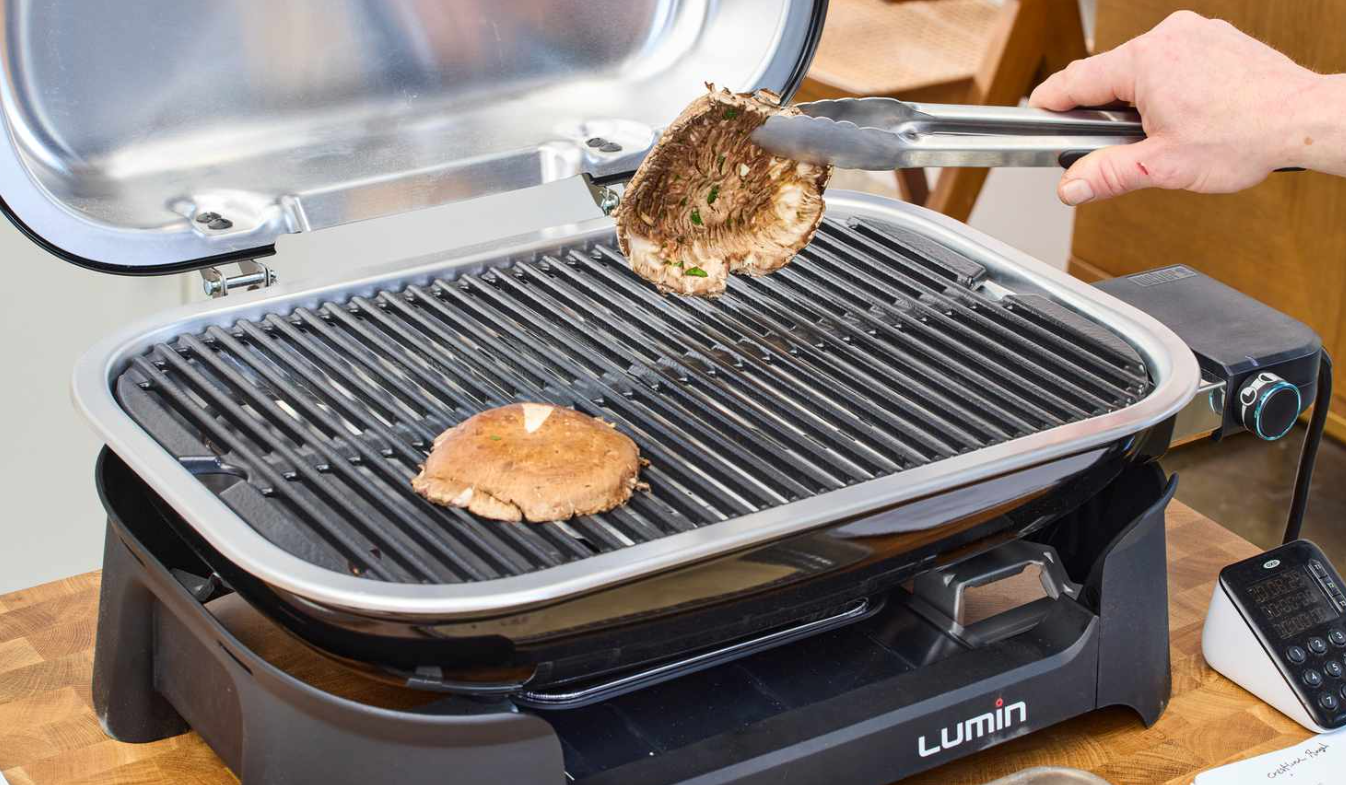
It takes a methodical strategy to locate trustworthy grill manufacturers in China to guarantee reliability and quality. Here are several platforms to help you identify and connect with suitable manufacturers:
1 alibaba.com
2 made-in-china.com
3 dhgate.com
4 globalsources.com
5 aliexpress.com
6 chinabrands.com
7 huntersourcing -China sourcing agent.
8. What is the Process for Importing Grills from China?
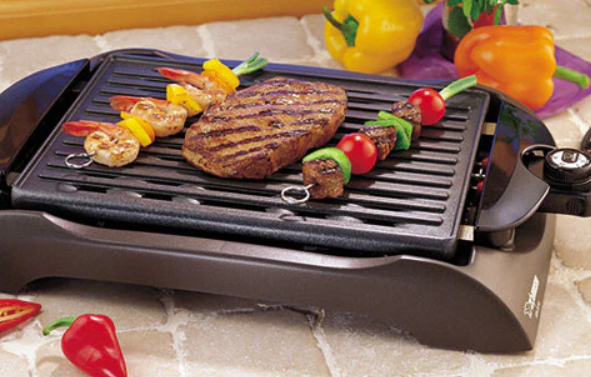
A smooth importation process for grills from China necessitates meticulous preparation and execution of each step in the process. This is a thorough rundown of the standard import procedure:
8.1 Research and Select Suppliers
The first step in acquiring grills from China is to explore suitable vendors. Make sure you thoroughly investigate vendors by looking into their trade history, certifications, and reviews.
8.2 Request Quotes and Negotiate Terms
Get quotations for the grills you are interested in from the providers you have narrowed down your list. Compare lead times, prices, payment terms, and minimum order quantities (MOQs). By negotiating advantageous terms, you can save expenses and boost your profit margins.
8.3 Place an Order and Create a Purchase Agreement
Place your order and complete the purchase agreement after choosing a supplier. Specifications for the product, order quantity, unit pricing, payment plan, and delivery timetable should all be included in this agreement.
To prevent misunderstandings, make sure the contract clearly states the quality criteria.
8.4 Arrange Quality Control Inspections
One way to reduce the possibility of obtaining faulty grills is to schedule independent quality control checks.
These inspectors may verify that the grills fulfill your standards before distribution by inspecting the product quality both during and after manufacture.
In order to reduce product flaws and preserve brand reputation, this step is essential.
8.5 Arrange Shipping and Logistics
Once the order is ready, coordinate with a freight forwarder to handle shipping logistics. You’ll need to choose between sea freight (cost-effective for large orders but slower) or air freight (faster but more expensive).
8.6 Customs and Import Duties
You’ll need to submit documentation like a commercial invoice, bill of lading, and packing list to customs authorities.
These records support the determination of the product’s worth and guarantee adherence to import laws. Delays at the border can be avoided by paying taxes and customs charges on time.
8.7 Manage Warehousing and Inventory
It’s time to handle inventory and warehousing once the shipment passes customs and arrives at its destination.
Depending on your company plan, you might sell the grills directly to customers or keep them in a warehouse until distributing them to merchants.
Lack of inventory or overstocking can be avoided with effective inventory management.
8.8 Sell and Distribute the Grills
You can start selling and distributing the grills by your business plan as soon as you receive them. To evaluate product reception and schedule orders for the future, keep track of sales performance and feedback.
8.9 Handle After-Sales Support and Returns
Lastly, be ready to handle returns and after-sale service. Providing customer service to resolve problems such as returns or defective products is crucial to keeping a good reputation.
Work with your supplier to address any quality concerns with the grills to avoid similar problems with subsequent shipments
9. How to Solve Quality Issues When Importing Grills from China

Businesses can find inexpensive products and increase their market share by importing grills from China, but there are hazards involved, especially with regard to quality control.
Poor quality can result in unhappy customers, a rise in returns, and reputational harm to a business. Businesses must proactively handle quality concerns through careful planning and process management in order to reduce these risks.
This comprehensive guide can help you resolve quality concerns while importing barbecues from China.
Dealing with untrustworthy vendors is the root cause of many quality-related issues. In order to reduce this danger, careful investigation is necessary:
9.1 Conduct Pre-Shipment Inspections
Make arrangements for pre-shipment inspections by an outside quality control organization before the grills are transported.
The functionality, general craftsmanship, and material quality should all be examined throughout this evaluation.
Before the products leave production, a professional inspection can assist in finding any quality problems early on and enable corrective action.
9.2 Establish Clear Quality Standards
Include explicit quality requirements and standards in the purchase contract you have with the manufacturer.
Provide information on the components, measurements, safety requirements, and allowable defect rates.
It will be simpler to explain requirements to the manufacturer and to confirm compliance during inspections if you have a clear quality checklist.
9.3 Communicate Regularly with Suppliers
Keep lines of communication open and consistent with your suppliers during the whole manufacturing process.
You can ensure that your standards are being met and spot possible problems early on with the support of regular updates and check-ins.
Building a strong relationship with manufacturers can also motivate them to respect quality standards and give priority to your order.
9.4 Request Samples Before Bulk Orders
Get samples of the grills before making a big purchase so you can assess the quality directly. That allows you to determine whether the product lives up to your expectations and lets you change the order as needed. Make sure the sample matches your expectations for large-scale production.
9.5 Implement a Robust Quality Control Process
Create a thorough quality control procedure that involves frequent inspections and audits at various manufacturing stages.
This could entail hiring quality control staff to keep a close eye on production or making recurring trips to the manufacturing location.
Regular supervision can assist in identifying problems before they get worse.
9.6 Have a Contingency Plan for Defective Products
Make a backup plan for handling faulty merchandise. This plan should specify how returns, replacements, and repairs are to be handled, as well as how to address quality concerns with customers.
You can react more swiftly and cause the least amount of disturbance to your organization by having a clear plan.
9.7 Collaborate with Suppliers on Solutions
After you receive the products, work with your suppliers to resolve any quality-related concerns. This could entail haggling over returns, exchanges, or modifications to subsequent orders.
Having a solid working relationship with your supplier can help you communicate more effectively and solve problems more quickly when there are quality issues.
9.8 Provide Feedback for Improvement
Once any quality issues have been resolved, provide your suppliers with constructive criticism. This pushes them to enhance their procedures and aids them in comprehending your standards for quality. Good teamwork can result in better orders down the road.
9.9 Stay Informed About Industry Standards
Stay informed about rules and specifications pertaining to grilling equipment in the business. Knowing these standards can help you spot problems with quality and make sure safety rules are followed, both of which are critical for safeguarding your reputation and clientele.
9.10 Document Everything
Keep detailed records of all quality control procedures, supplier communications, inspections, and problems that arise. In addition to acting as a reference for upcoming orders, this paperwork can be useful in supplier negotiations or dispute resolution.
10. Conclusion
A few benefits of importing grills from China are reduced production costs, large manufacturing capacity, and increased customizability.
Businesses can take advantage of competitive costs without sacrificing quality when they have access to a broad pool of skilled individuals.
But there are also a lot of drawbacks to taking into account, like possible problems with quality control, linguistic and cultural barriers, and supply chain disruption concerns.
Importing might also be made more difficult by worries about intellectual property rights and following customs laws.
Final Recommendations for Importers
Here are a few last suggestions for importers trying to work through the difficulties of importing grills from China:
Implement Quality Control: To identify problems early in the production process and schedule routine inspections and quality control procedures.
Build Strong Relationships: To expedite problem-solving and guarantee dependable collaborations, cultivate strong ties and communication with your suppliers.
Stay Informed: To respond to market shifts and improve your importing strategy, stay up to date on industry developments, laws, and best practices.
Importers may effectively negotiate the hurdles of sourcing grills from China and take advantage of the opportunity it brings for business growth by carefully considering the advantages and disadvantages and putting smart plans into practice.
Related Post
Wood is extensively used in making furniture around the world. Wood can be molded in any shape or Read more
In the current market condition, a major portion of the world's consumption depends on China. The product range Read more
China offers many types of sofas at an affordable price. When it comes to Chinese Sofa Manufacturer, This Read more
Contact Us Get Free Quote!
* Please kindly fill out the form for inquiry
* we will reply to your inquiry within 24hours

